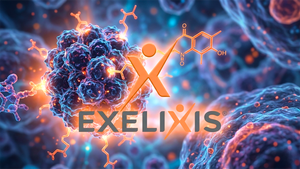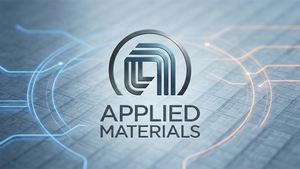The new framework brings clarity to distributed decision-making for enterprise AI systems.
-- BlockAI has officially introduced its Question-Option-Criteria (QOC) framework, a new architecture aimed at making the decision-making processes of AI agents more transparent and explainable. The launch is a response to an increasing demand among enterprises and institutions for greater insight into how artificial intelligence arrives at specific recommendations—especially in finance, logistics, and public policy, where understanding decision logic is essential.

Unlike traditional AI outputs that often provide unstructured suggestions, QOC offers a structured method rooted in distributed decision making. BlockAI’s system enables AI agents to recommend clear conclusions by evaluating multiple options against defined criteria and synthesizing those results into actionable insights. The architecture addresses long-standing concerns about the so-called “black box” nature of artificial intelligence, particularly in complex enterprise applications.
“In high-stakes industries, you cannot afford to take AI-generated suggestions at face value without understanding how they were derived,” said Christophe Verdot, co-founder of BlockAI. “QOC brings clarity and structure to AI recommendations, offering not only the ‘what’ but also the ‘why’ behind every decision. That’s a breakthrough for trust and adoption in enterprise-grade AI systems.”
QOC draws from established decision-analysis methodologies and is built within BlockAI’s decentralized architecture. Each decision cycle begins with contextual stakeholder agents proposing relevant options and criteria. These inputs are then consolidated, weighted, and evaluated. The system calculates a preferred option using a predefined algorithm, which also identifies similarly suitable alternatives—recommendations that score comparably under the same criteria.
Each decision is supported by a traceable path that allows stakeholders to understand how the recommendation was reached. This level of transparency supports greater confidence in AI agent behavior, especially when the outcomes influence high-impact decisions.
According to Verdot, the QOC framework could be particularly useful for decentralized autonomous organizations (DAOs) exploring structured decision-making in areas such as treasury management and strategic asset allocation. In these scenarios, DAOs might evaluate options based on factors like volatility, liquidity, and alignment with community goals. By generating structured outputs, the system has the potential to support more transparent and accountable decision processes, especially within blockchain-based ecosystems.
“Distributed decision making is a perfect match for blockchain,” Verdot said. “Our agents operate transparently, logging all steps in the decision process. It’s not just about reaching the right answer—it’s about showing your work. That kind of accountability is indispensable in modern AI applications.”
To support this functionality, BlockAI has introduced a dedicated QOC layer that sits atop its large language model (LLM) layer. While LLMs are effective at interpreting context and producing fluent suggestions, they often lack inherent explainability. The QOC layer provides a complementary structure, transforming raw AI outputs into decisions that are both intelligible and traceable.
In addition to explainability, the system includes built-in statistical analysis tools. These features allow users to visualize how each option scored against evaluation criteria. Decision graphs can highlight trade-offs, surface conflicting priorities, and show the extent of agreement among AI agents. It’s also possible to audit individual agent contributions to specific recommendations—adding another layer of transparency and stakeholder trust.
BlockAI designed the QOC module to work across multiple blockchains, extending its reach to a variety of decentralized ecosystems. The system is accessible via several interfaces, including a developer API, smart contract callback mechanism, and a user-facing Web UI. This multi-access model is part of the company’s bigger approach to delivering modular, explainable tools for deploying artificial intelligence in real-world environments.
The launch, according to Verdot, comes at the height of increasing regulatory and ethical scrutiny around AI systems. From algorithmic lending to autonomous navigation, organizations are facing growing pressure to ensure that machine-generated decisions can be justified and audited. With explainability emerging as a key requirement, frameworks like QOC provide a potential solution for aligning technical outputs with governance standards.
BlockAI aims to put QOC as a cornerstone in its mission to embed artificial intelligence into blockchain-based infrastructures without compromising on visibility or accountability. The company sees scalable, transparent decision systems as essential to the next generation of AI-powered platforms.

About BlockAI
BlockAI is a decentralized platform that combines artificial intelligence with blockchain technologies to deliver transparent and efficient AI-driven systems. Founded by developers Christophe Verdot and Marc Jansen, the company focuses on building tools for developers, enterprises, and end users that maintain strong principles around data ownership, privacy, and traceability.
BlockAI supports various deployment scenarios through its B2C Web UI, B2B Smart Contract Callback, and B2B2C Developer API. From content generation to decision-support tools, the platform emphasizes explainability and user empowerment. By bridging the gap between AI agents and distributed decision making, BlockAI continues to develop solutions that reflect the evolving needs of enterprise and decentralized ecosystems alike.
Contact Info:
Name: Christophe Verdot
Email: Send Email
Organization: BlockAI
Website: https://blockai.dev
Release ID: 89161131
Should you identify any discrepancies, concerns, or inaccuracies in the content provided in this press release or require assistance with a press release takedown, we strongly urge you to notify us promptly by contacting error@releasecontact.com (it is important to note that this email is the authorized channel for such matters, sending multiple emails to multiple addresses does not necessarily help expedite your request). Our responsive team is committed to addressing your concerns within 8 hours by taking necessary actions to resolve identified issues diligently or guiding you through the necessary steps for removal. Our dedication lies in providing accurate and reliable information.




